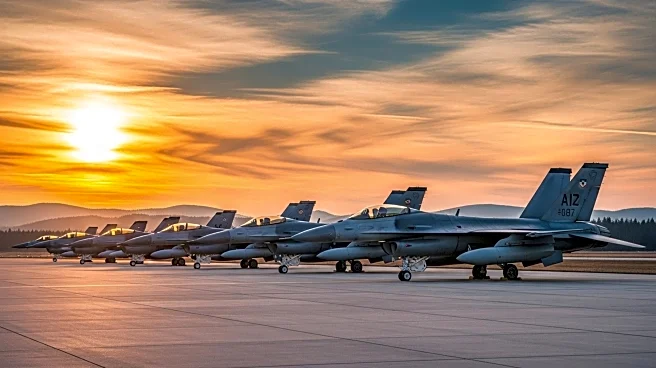What's Happening?
NATO's air policing mission at Ämari Air Base in Estonia has been actively responding to recent Russian airspace incursions. Italian Air Force personnel, part of the NATO contingent, intercepted three Russian MiG-31 fighter jets that entered Estonian airspace. The Italian F-35s, equipped with air-to-air missiles for self-defense, escorted the Russian jets out of the airspace. This incident is part of a broader pattern of Russian military activity in the region, including drone incursions into Polish airspace. The Italian contingent at Ämari Air Base is part of NATO's Quick Reaction Alert (QRA) mission, which aims to protect the airspace of Baltic nations.
Why It's Important?
The interception of Russian jets by NATO forces highlights the ongoing security challenges in the Baltic region. These airspace violations by Russia are seen as provocations that test NATO's readiness and resolve. The presence of NATO forces in Estonia serves as a deterrent against further incursions and reassures member states of the alliance's commitment to collective defense. The situation underscores the strategic importance of the Baltic region in NATO's defense posture and the need for continued investment in air defense capabilities. It also reflects the broader geopolitical tensions between Russia and NATO, with potential implications for regional stability and security.
What's Next?
NATO is likely to continue its air policing missions in the Baltic region to deter further Russian incursions. The alliance may also enhance its air defense capabilities and coordination among member states to respond more effectively to such incidents. Diplomatic efforts may be pursued to address the underlying tensions and prevent escalation. Additionally, NATO's presence in the region could be strengthened through increased military exercises and the deployment of additional assets to ensure readiness and deterrence.









